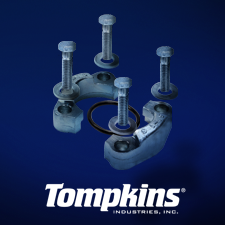To do or not to due diligence
By M. Jay Heilbrunn, The Distributor Board
 Whenever a distribution company contemplates expansion through acquisition, a target is identified and a Letter of Intent is presented. If accepted, the next order of business is to conduct due diligence.
Whenever a distribution company contemplates expansion through acquisition, a target is identified and a Letter of Intent is presented. If accepted, the next order of business is to conduct due diligence.
What exactly is due diligence?
Due diligence is a review of all financial records plus anything else deemed material to the purchase of a business. Sellers could also perform a due diligence analysis on the buyer. Items that a seller may consider are the buyer's ability to purchase, as well as other items that would affect the purchased entity or the seller after the sale has been completed. Due diligence is a way of preventing unnecessary harm to either party involved in a transaction.
Is due diligence always necessary?
Well known investor Warren Buffet doesn't always think so. In several articles, including the Wall Street Journal and BeingWarrenBuffet.com, we find:
"... Company mergers can be complex and drawn out affairs involving an army of lawyers, accountants and the like. It can sometimes take up to a year to finalize details. In 2003 Berkshire Hathaway bought McLane Distribution Company from Wal-Mart and following a 2-hour meeting managed to finalize the acquisition in just under a month. We're not talking about trifling sums here either; this was a $23 billion transaction. Warren Buffett did no due diligence. Both companies were public and therefore their records could be scrutinized by the public. Warren Buffett said, "I trusted Wal-Mart, I trusted the people I worked with. I knew everything would be in exactly the order that they said it would be, and it was." He said, "We did no due diligence."
This may be extreme, but worth considering.
How do you go about conducting a typical due diligence process?
Over time, I have reviewed several due diligence "check lists." These usually run 8-10 pages of single spaced items. Typically, they include reviewing information on the following topics:
- Background on the Company
- Historical information
- Financial data
- Human resources, management, staff and policies
- Facilities and real estate
- Equipment
- Product lines
- Inventory
- Sales, marketing and advertising
- Purchasing
- Inventory
- Technology
- Legal issues
In most cases, a great deal of time is spent pouring over financial data to make sure that what is presented is accurate. Inventory is always a "hot button" in acquisitions. This is because most distributors are painfully aware of their own inventory deficiencies and want to minimize the impact of acquiring more "dead inventory" through this business purchase. Receivables are also a big concern; are they "good" and will payments actually be received? To confirm the actual existence of assets, time is spent checking serial numbers on specific equipment and determining the "fair market value."
Where should more time be spent?
Very often the "organization" is assumed. It is expected that people will stay with the company and continue to perform. Many consider "employees their greatest asset," and yet very little time is spent evaluating management, office staff, warehouse people and drivers. What are their individual strengths and limitations? How will they integrate with your existing personnel? What training will they need? Will the cultures fit or clash? Who will stay? Who will leave? Who do you, as the buyer, want to keep or replace? Will you gain valuable management talent, or will the acquired management be a liability? "Organizational due diligence" is often given short shrift.
Very often the "customer" is assumed. The seller has been doing business with his customers for many years. "They're all good!" Maybe not so fast. There is always a reluctance to reveal customer lists. However, time needs to be spent looking at customer turnover and acquisition. Are both companies serving the same customer(s)? Has the customer base been growing? How well is the market defined and what is the customer share of market? Can you rate the "risk" of retention that each customer presents? Are there opportunities in dormant customers?
The same can be said about a distributor's suppliers. Don't assume they are "all good."
Ever buy a used car? You take it for a test ride and it runs great! A week after you bought it, all of the things that need fixing start to appear. The same holds true for newly acquired companies. Very often "good working order" is assumed. It should not. Not enough time is spent in the nooks and crannies of a company to document what needs fixing. This exists across all disciplines. What are known as "reps and warranties" are part of the "purchase" agreement and, yes they do provide some protection for the buyer. However, legal intervention takes time and you still have to run and integrate the new business. "Fixing" is a distraction from accomplishing the goals one has for the newly acquired company. Knowing what has to be fixed in advance is a real benefit both in terms of purchase price and in budgeting the integration costs.
What's the answer? Develop a comprehensive due diligence plan
When starting the due diligence process, set very tight time limits on each aspect of the due diligence plan. Make sure to prioritize the issues that will have the greatest impact on the business post acquisition before you finalize the purchase. Remember to keep in mind that a higher proportion of time should be spent on the most important parts of the business, the employees and the customers!
The Distributor Board provides Advisory Board and Consultative services to wholesale distribution companies. The Distributor Principles have owned, run, managed, and advised successful distribution companies for many years. Areas of particular specialization include Strategic Planning, Mergers & Acquisitions, Technology, Operations and Sourcing.Visit www.TheDistributorBoard.com or e-mail Info@TheDistributorBoard.com.












